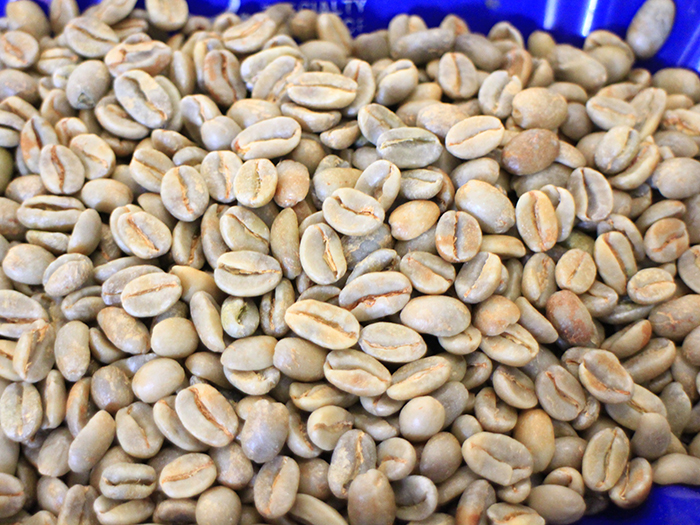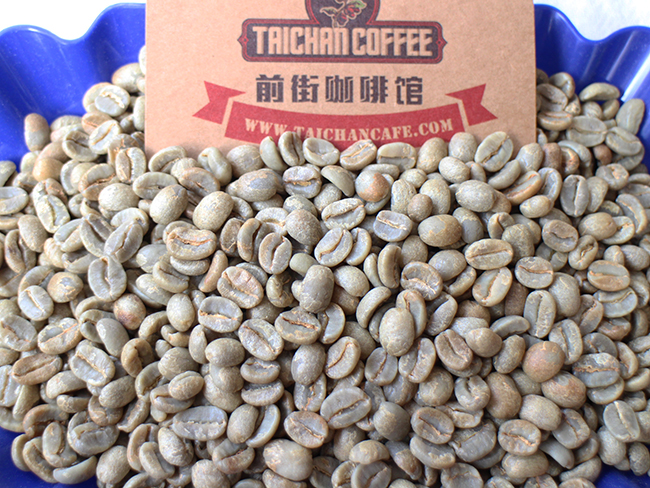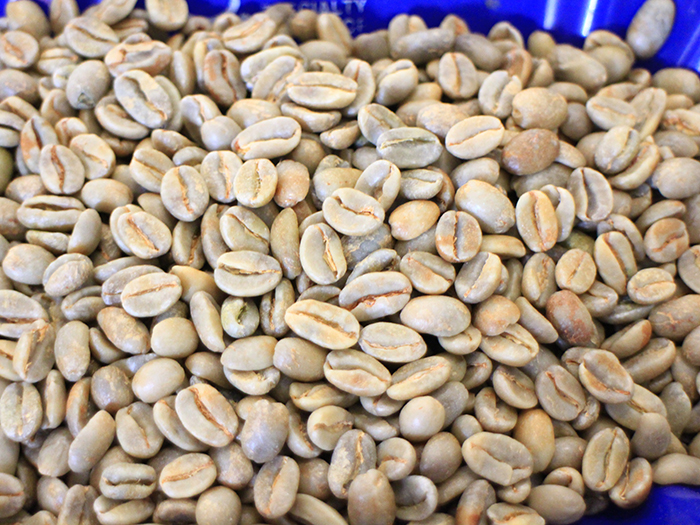What kind of raw beans are high-quality raw beans? How to choose raw coffee beans? Guatemala raw bean
What kind of raw beans are high-quality raw beans? First look at the surface of beans, fresh and high-quality raw beans, the surface is shiny, in addition, the processing of good raw beans, uniform color, the surface of uneven color can not be called good beans, must choose uniform color. Secondly, the particle size is the same, which is also evidence of good quality management. Make sure that the particle size is the same when you buy it. Even and neat coffee raw beans can achieve a consistent baking effect; otherwise, some are too deep and bitter, and some are too shallow and sour, which will affect the overall taste of roasted coffee beans. Raw beans are divided into several grades according to quality standards, which vary from place to place, basically according to size and shape. The higher the grade, the better the quality. At present, as the domestic coffee raw bean market has just started, the coffee raw beans sold are mainly low-grade futures beans. People usually have a lot of defects in the raw beans they get. Defective coffee beans are quite harmful, including that the mutated beans are neither flat nor garden beans. Due to abnormal development, the raw beans are broken in the center when they are shelled. This kind of bean is prone to uneven baking. Fermented beans / black beans are fermented internally in the process of processing or washing. It has the smell of fermented acid. Unripe beans / white dead beans are harvested when the coffee fruit is not fully ripe. This kind of bean is ivory after baking and tastes green and astringent. The process of processing and transportation of mildew beans is affected by damp, rain and mold. As long as one bean is moldy, it will soon spread to others, so be careful. Worm-eaten beans are eaten by a pest called coffee bark beetle, and there are insect eyes on the beans, which make coffee smell.
Country: Guatemala
Producing area: new Oriental
Manor: guava Plain Manor
Producer: Mr.BenjaminDonado
Treatment method: wine flavor and sun treatment
Variety: SL28
Altitude: 1675 m
Flavor: pineapple, dried apricot, red wine
Guatemala is one of the most important coffee producing countries in Central America, with long mountains and different regional climates, thus creating eight major coffee producing areas in Guatemala, all located on the highland topography of the subtropical climate, with abundant and stable rainfall and fertile volcanic ash soil is an excellent environment for coffee trees to grow. PlandelGuayabo is located next to the Volc á ndeSuchitn volcano, which means "guava plain" in Spanish. It is named because of the large number of guava trees planted locally. The owner of the manor is Mr. Donado Donado. The Donado family has been engaged in coffee production since 1990 and has been producing coffee for more than 20 years. Before that, local farmers were so strange to coffee production that it was hard to imagine planting coffee trees in such a steep and high altitude environment, but now it has been proved that Benjamin made the right choice to produce high quality coffee beans with different varieties and different processing methods. In the early NewOriente region of Guatemala, it was common for berry buyers to regularly buy coffee cherries from farmers and then resell them to larger middlemen, where they were resold to the town of Esquipulas, where they were mixed with other batches to form a large batch of SHB that could not be traced back, and finally sold around the world under the name New Oriental (NewOriente). In view of this, more and more international raw bean traders are trying to change this situation, working with local partners to produce coffee raw beans with excellent flavor and traceable origin, breaking the traditional vicious circle. Guava Plain Manor is one of the important members.

Important Notice :
前街咖啡 FrontStreet Coffee has moved to new addredd:
FrontStreet Coffee Address: 315,Donghua East Road,GuangZhou
Tel:020 38364473
- Prev

What kind of raw beans are high-quality raw beans? How to choose raw coffee beans? Papua New Guinea
What kind of raw beans are high-quality raw beans? First look at the surface of beans, fresh and high-quality raw beans, the surface is shiny, in addition, the processing of good raw beans, uniform color, the surface of uneven color can not be called good beans, must choose uniform color. Secondly, the particle size is the same, which is also evidence of good quality management. Make sure that the particle size is the same when you buy it.
- Next

What kind of raw beans are high-quality raw beans? How to choose raw coffee beans? Yega Shirley Fischer
What kind of raw beans are high-quality raw beans? First look at the surface of beans, fresh and high-quality raw beans, the surface is shiny, in addition, the processing of good raw beans, uniform color, the surface of uneven color can not be called good beans, must choose uniform color. Secondly, the particle size is the same, which is also evidence of good quality management. Make sure that the particle size is the same when you buy it.
Related
- Detailed explanation of Jadeite planting Land in Panamanian Jadeite Manor introduction to the grading system of Jadeite competitive bidding, Red bid, Green bid and Rose Summer
- Story of Coffee planting in Brenka region of Costa Rica Stonehenge Manor anaerobic heavy honey treatment of flavor mouth
- What's on the barrel of Blue Mountain Coffee beans?
- Can American coffee also pull flowers? How to use hot American style to pull out a good-looking pattern?
- Can you make a cold extract with coffee beans? What is the right proportion for cold-extracted coffee formula?
- Indonesian PWN Gold Mandrine Coffee Origin Features Flavor How to Chong? Mandolin coffee is American.
- A brief introduction to the flavor characteristics of Brazilian yellow bourbon coffee beans
- What is the effect of different water quality on the flavor of cold-extracted coffee? What kind of water is best for brewing coffee?
- Why do you think of Rose Summer whenever you mention Panamanian coffee?
- Introduction to the characteristics of authentic blue mountain coffee bean producing areas? What is the CIB Coffee Authority in Jamaica?

